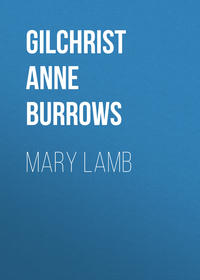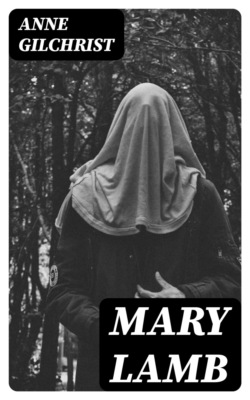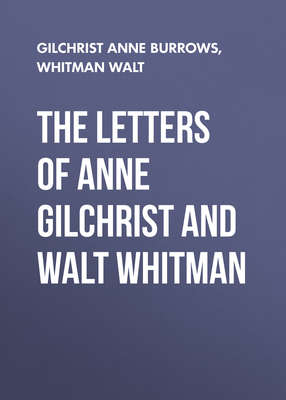Kitabı oku: «Mary Lamb», sayfa 5
The immediate cause of her attacks would generally seem to have been excitement or over-fatigue causing, in the first instance, loss of sleep, a feverish restlessness and ending in the complete overthrow of reason. "Her relapses," says Proctor, "were not dependent on the seasons; they came in hot summer and with the freezing winters. The only remedy seems to have been extreme quiet when any slight symptom of uneasiness was apparent. If any exciting talk occurred Charles had to dismiss his friend with a whisper. If any stupor or extraordinary silence was observed then he had to rouse her instantly. He has been seen to take the kettle from the fire and place it for a moment on her headdress, in order to startle her into recollection." Once the sudden announcement of the marriage of a young friend – whose welfare she had at heart – restored her, in a moment, after a protracted illness, "as if by an electrical stroke, to the entire possession of her senses." But if no precautions availed to remove the premonitory symptom, then would Mary "as gently as possible prepare her brother for the duty he must perform; and thus, unless he could stave off the terrible separation till Sunday, oblige him to ask leave of absence from the office, as if for a day's pleasure – a bitter mockery! On one occasion Mr. Charles Lloyd met them slowly pacing together a little foot-path in Hoxton fields, both weeping bitterly and found, on joining them, that they were taking their solemn way to the accustomed asylum." Holiday trips were almost always followed by a seizure; and never did Mary set out on one but with her own hands she packed a strait-waistcoat.
The attacks were commonly followed by a period of extreme depression, a sense of being shattered, and by a painful loss of self-reliance. These were but temporary states, however. Mary's habitual frame of mind was, as Talfourd says, serene and capable of placid enjoyment. In her letters to Sarah Stoddart there are some affecting and probably unique disclosures of how one who is suffering from madness feels; and what, taught by her own experience, Mary regarded as the most important points in the management of the insane. In reference to her friend's mother who was thus afflicted, she writes: —
"Do not, I conjure you, let her unhappy malady afflict you too deeply. I speak from experience and from the opportunity I have had of much observation in such cases that insane people, in the fancies they take into their heads, do not feel as one in a sane state of mind does under the real evil of poverty, the perception of having done wrong, or of any such thing that runs in their heads.
"Think as little as you can, and let your whole care be to be certain that she is treated with tenderness. I lay a stress upon this because it is a thing of which people in her state are uncommonly susceptible, and which hardly anyone is at all aware of; a hired nurse never, even though in all other respects they are good kind of people. I do not think your own presence necessary, unless she takes to you very much, except for the purpose of seeing with your own eyes that she is very kindly treated.
"I do long to see you! God bless and comfort you."
And again, a few weeks later: —
"After a very feverish night I writ a letter to you and I have been distressed about it ever since. That which gives me most concern is the way in which I talked about your mother's illness, and which I have since feared you might construe into my having a doubt of your showing her proper attention without my impertinent interference. God knows, nothing of this kind was ever in my thoughts, but I have entered very deeply into your affliction with regard to your mother; and while I was writing, the many poor souls in the kind of desponding way she is whom I have seen came fresh into my mind, and all the mismanagement with which I have seen them treated was strong in my mind, and I wrote under a forcible impulse which I could not at the time resist, but I have fretted so much about it since that I think it is the last time I will ever let my pen run away with me.
"Your kind heart will, I know, even if you have been a little displeased, forgive me when I assure you my spirits have been so much hurt by my last illness, that, at times, I hardly know what I do. I do not mean to alarm you about myself, or to plead an excuse; but I am very much otherwise than you have always known me. I do not think anyone perceives me altered, but I have lost all self-confidence in my own actions, and one cause of my low spirits is that I never feel satisfied with anything I do – a perception of not being in a sane state perpetually haunts me. I am ashamed to confess this weakness to you; which, as I am so sensible of, I ought to strive to conquer. But I tell you, that you may excuse any part of my letter that has given offence; for your not answering it, when you are such a punctual correspondent, has made me very uneasy.
"Write immediately, my dear Sarah, but do not notice this letter, nor do not mention anything I said relative to your poor mother. Your handwriting will convince me you are friends with me; and if Charles, who must see my letter, was to know I had first written foolishly and then fretted about the event of my folly, he would both ways be angry with me.
"I would desire you to direct to me at home, but your hand is so well known to Charles that that would not do. Therefore, take no notice of my megrims till we meet, which I most ardently long to do. An hour spent in your company would be a cordial to my drooping heart.
"Write, I beg, by the return of post; and as I am very anxious to hear whether you are, as I fear, dissatisfied with me, you shall, if you please, direct my letter to nurse. I do not mean to continue a secret correspondence, but you must oblige me with this one letter. In future I will always show my letters before they go, which will be a proper check upon my wayward pen."
But it was upon her brother that the burthen lay heaviest. It was on his brain that the cruel image of the mother's death-scene was burnt in, and that the grief and loneliness consequent on Mary's ever recurring attacks pressed sorest.
"His anxiety for her health, even in his most convivial moments, was unceasing. If, in company, he perceived she looked languid, he would repeatedly ask her, 'Mary, does your head ache?' Don't you feel unwell? and would be satisfied by none of her gentle assurances that his fears were groundless. He was always fearful of her sensibilities being too deeply engaged and if, in her presence, any painful accident or history was discussed, he would turn the conversation with some desperate joke." Miss Betham related to Talfourd that, once when she was speaking to Miss Lamb of her brother and in her earnestness Mary had laid her hand kindly on the eulogist's shoulder, he came up hastily and interrupted them saying, 'Come, come, we must not talk sentimentally' and took up the conversation in his gayest strain.
The constant anxiety, the forebodings, the unremitting watchful scrutiny of his sister's state, produced a nervous tension and irritability that pervaded his whole life and manifested themselves in many different ways.
"When she discovers symptoms of approaching illness," he once wrote to Dorothy Wordsworth, "it is not easy to say what is best to do. Being by ourselves is bad, and going out is bad. I get so irritable and wretched with fear, that I constantly hasten on the disorder. You cannot conceive the misery of such a foresight. I am sure that for the week before she left me I was little better than light-headed. I now am calm, but sadly, taken down and flat." Well might he say, "my waking life has much of the confusion, the trouble and obscure perplexity of an ill dream." For he, too, had to wrestle in his own person with the same foe, the same hereditary tendency; though, after one overthrow of reason in his youth, he wrestled successfully. But the frequent allusions in his letters, especially in later years, to attacks of nervous fever, sleeplessness, and depression "black as a smith's beard, Vulcanic, Stygian" show how near to the brink he was sometimes dragged. "You do not know how sore and weak a brain I have, or you would allow for many things which you set down to whim," he wrote to Godwin. And again, when there had been some coolness between them: "… did the black Hypochondria never gripe thy heart till thou hast taken a friend for an enemy? The foul fiend, Flibbertigibbet leads me over four-inched bridges to course my own shadow for a traitor…"
"Yet, nervous, tremulous as he seemed," writes Talfourd, 'so slight of frame that he looked only fit for the most placid fortune, when the dismal emergencies which chequered his life arose, he acted with as much promptitude and vigour as if he were strung with Herculean sinews.' 'Such fortitude in his manners, and such a ravage of suffering in his countenance did he display,' said Coleridge, 'as went to the hearts of his friends,' It was rather by the violence of the reaction that a keen observer might have estimated the extent of these sufferings; by that 'escape from the pressure of agony, into a fantastic,' sometimes almost a demoniac 'mirth which made Lamb a problem to strangers while it endeared him thousandfold to those who really knew him.'
The child of impulse ever to appear
And yet through duty's path strictly to steer,
O Lamb, thou art a mystery to me!
Thou art so prudent, and so mad with wildness —
wrote Charles Lloyd.
Sweet and strong must have been the nature upon which the crush of so severe a destiny produced no soreness, no bitterness, no violence but only the rebound of a wild fantastic gaiety. In his writings not only is there an entire absence of the morbid, the querulous, I can find but one expression that breathes of what his sombre experiences were. It is in that most masterly of all his criticisms (unless it be the one on Lear), the Genius and Character of Hogarth, where, in the sublime description of the Bedlam scene in the Rake's Progress, he tells of "the frightful, obstinate laugh of madness." In one apparent way only did the calamity which overshadowed his life, exert an influence on his genius. It turned him, as Talfourd finely suggests, "to seek a kindred interest in the sterner stuff of old tragedy – to catastrophes more fearful even than his own – to the aspects of pale passion, to shapes of heroic daring and more heroic suffering, to the agonising contests of opposing affections and the victories of the soul over calamity and death which the old English drama discloses, and in the contemplation of which he saw his own suffering nature at once mirrored and exalted." In short, no man ever stood more nobly the test of life-long affliction: 'a deep distress had harmonised his soul.'
Only on one point did the stress of his difficult lot find him vulnerable, one flaw bring to light – a tendency to counteract his depression and take the edge off his poignant anxieties by a too free use of stimulants. The manners of his day, the custom of producing wine and strong drinks on every possible occasion, bore hard on such a craving and fostered a man's weakness. But Lamb maintained to the end a good standing fight with the enemy and, if not wholly victorious, still less was he wholly defeated. So much on account of certain home anxieties to which Mary's letters to Sarah Stoddart make undisguised allusion.
CHAPTER VI
Visit to Coleridge at Greta Hall. – Wordsworth and his Sister in London. – Letters to Miss Stoddart. – Coleridge goes to Malta. – Letter to Dorothy Wordsworth on the Death of her Brother John
1802-1805. – Æt. 38-41
In the summer of 1802, when holiday time came round Charles was seized with 'a strong desire of visiting remote regions;' and after some whimsical deliberations his final resolve was to go with Mary to see Coleridge at the Lakes.
"I set out with Mary to Keswick," he tells Manning, "without giving any notice to Coleridge [who was now living at Greta Hall, soon to become Southey's home for the rest of his life] for my time being precious did not admit of it. We got in in the evening, travelling in a post-chaise from Penrith, in the midst of a gorgeous sunset which transmuted the mountains into all colours, purple, &c. We thought we had got into fairy-land; but that went off (and it never came again while we stayed we had no more fine sunsets) and we entered Coleridge's comfortable study just in the dusk when the mountains were all dark with clouds upon their heads. Such an impression I never received from objects of sight before nor do I suppose I ever can again. Glorious creatures, fine old fellows, Skiddaw, &c., I shall never forget ye, how ye lay about that night like an intrenchment; gone to bed, as it seemed, for the night but promising that ye were to be seen in the morning. Coleridge had got a blazing fire in his study which is a large antique, ill-shaped room with an old-fashioned organ, never played upon, big enough for a church; shelves of scattered folios, an Æolian harp and an old sofa half-bed, &c. And all looking out upon the last fading view of Skiddaw and his broad-breasted brethren. What a night!"
The Poet had now a second son, or rather a third (for the second had died in infancy), Derwent, a fine bright, fair, broad-chested little fellow not quite two years old, with whom Charles and Mary were delighted. A merry sprite he was, in a yellow frock which obtained for him the nick-name of Stumpy Canary, who loved to race from kitchen to parlour and from parlour to kitchen just putting in his head at the door with roguish smile to catch notice, then off again, shaking his little sides with laughter. He fairly won their hearts and long after figures in their letters as Pi-pos Pot-pos, his own way of pronouncing striped opossum and spotted opossum, which he would point out triumphantly in his picture book. Hartley, now six, was a prematurely grave and thoughtful child who had already, as a curious anecdote told by Crabb Robinson shows, begun to take surprising plunges into "the metaphysic well without a bottom"; for once when asked something about himself and called by name he said, "Which Hartley?" "Why, is there more than one Hartley?" "Yes, there's a deal of Hartleys; there's Picture Hartley [Hazlitt had painted his portrait] and Shadow Hartley and there's Echo Hartley and there's Catch-me-fast Hartley," seizing his own arm with the other hand; thereby showing, said his father, that "he had begun to reflect on what Kant calls the great and inexplicable mystery that man should be both his own subject and object and that these should yet be one!"
Three delightful weeks they stayed. "So we have seen," continues Lamb to Manning, "Keswick, Grasmere, Ambleside, Ulswater (where the Clarksons live), and a place at the other end of Ulswater; I forget the name [Patterdale] to which we travelled on a very sultry day, over the middle of Helvellyn. We have clambered up to the top of Skiddaw and I have waded up the bed of Lodore. Mary was excessively tired when she got about half-way up Skiddaw but we came to a cold rill (than which nothing can be imagined more cold, running over cold stones) and, with the reinforcement of a draught of cold water, she surmounted it most manfully. Oh its fine black head! and the bleak air atop of it with the prospect of mountains all about and about making you giddy; and then Scotland afar off and the border countries so famous in song and ballad! It was a day that will stand out like a mountain, I am sure, in my life."
Wordsworth was away at Calais but the Lambs stayed a day or so in his cottage with the Clarksons (he of slavery abolition fame and she "one of the friendliest, comfortablest women we know who made the little stay one of the pleasantest times we ever passed"); saw Lloyd again but remained distrustful of him on account of the seeds of bitterness he had once sown between the friends, and finally got home very pleasantly: Mary a good deal fatigued, finding the difference between going to a place and coming from it, but not otherwise the worse. "Lloyd has written me a fine letter of friendship," says Lamb, soon after his return, "all about himself and Sophia and love and cant which I have not answered. I have not given up the idea of writing to him but it will be done very plainly and sincerely, without acrimony."
They found the Wordsworths (the poet and his sister, that is, for he was not yet married though just about to be) lodging near their own quarters, saw much of them, pioneered them through Bartlemy Fair; and now, on Mary's part, was formed that intimacy with Dorothy which led to her being their constant visitor and sometimes their house-guest when she was in London.
As great a contrast in most respects, to Dorothy Wordsworth as the whole range of womankind could have furnished was Mary's other friend and correspondent, Sarah Stoddart, afterwards Mrs. Hazlitt. Sarah was the only daughter of a retired lieutenant in the navy, a Scotchman who had settled down on a little property at Winterslow near Salisbury which she ultimately inherited. She was a young lady with a business-like determination to marry and with many suitors; but, far from following the old injunction to be off with the old love before being on with the new, she always cautiously kept the old love dangling till she was quite sure the new was the more eligible. Mary's letters to her have happily been preserved and published by Miss Stoddart's grandson, Mr. W. Carew Hazlitt, in his Mary and Charles Lamb. The first, dated September 21, 1803, was written after Miss Stoddart had been staying with the Lambs and when a decision had been arrived at that she should accompany her only brother, Dr. Stoddart, to Malta where he had just been appointed King's Advocate. Mary's spelling and here and there even a little slip in the matter of grammar have been retained as seeming part of the individuality of the letters: —
"I returned from my visit yesterday and was very much pleased to find your letter; for I have been very anxious to hear how you are going on. I could hardly help expecting to see you when I came in; yet though I should have rejoiced to have seen your merry face again, I believe it was better as it was, upon the whole; and all things considered, it is certainly better you should go to Malta. The terms you are upon with your lover [a Mr. Turner to whom she was engaged] does (as you say it will) appear wondrous strange to me; however, as I cannot enter into your feelings I certainly can have nothing to say to it, only that I sincerely wish you happy in your own way however odd that way may appear to me to be. I would begin now to advise you to drop all correspondence with William [not William Hazlitt but an earlier admirer]; but, as I said before, as I cannot enter into your feelings and views of things, your ways not being my ways, why should I tell you what I would do in your situation? So, child, take thy own ways and God prosper thee in them!
"One thing my advising spirit must say; use as little secresy as possible, make a friend of your sister-in-law; you know I was not struck with her at first sight but, upon your account, I have watched and marked her very attentively and while she was eating a bit of cold mutton in our kitchen we had a serious conversation. From the frankness of her manner I am convinced she is a person I could make a friend of; why should not you? We talked freely about you; she seems to have a just notion of your character and will be fond of you if you will let her."
After instancing the misunderstandings between her own mother and aunt already quoted, Mary continues: —
"My aunt and my mother were wholly unlike you and your sister yet, in some degree, theirs is the secret history, I believe, of all sisters-in-law and you will smile when I tell you I think myself the only woman in the world who could live with a brother's wife and make a real friend of her, partly from early observation of the unhappy example I have just given you and partly from a knack I know I have of looking into people's real characters and never expecting them to act out of it – never expecting another to do as I would in the same case. When you leave your mother and say if you never see her again you shall feel no remorse and when you make a jewish bargain with your lover, all this gives me no offence because it is your nature and your temper and I do not expect or want you to be otherwise than you are. I love you for the good that is in you and look for no change.
"But certainly you ought to struggle with the evil that does most easily beset you – a total want of politeness in behaviour, I would say modesty of behaviour but that I should not convey to you my idea of the word modesty; for I certainly do not mean that you want real modesty and what is usually called false or mock modesty I certainly do not wish you to possess; yet I trust you know what I mean well enough. Secresy, though you appear all frankness, is certainly a grand failing of yours; it is likewise your brother's and, therefore, a family failing. By secresy I mean you both want the habit of telling each other, at the moment, everything that happens, where you go and what you do – that free communication of letters and opinions just as they arrive as Charles and I do – and which is, after all, the only ground-work of friendship. Your brother, I will answer for it, will never tell his wife or his sister all that is in his mind; he will receive letters and not [mention it]. This is a fault Mrs. Stoddart can never [tell him of] but she can and will feel it though on the whole and in every other respect she is happy with him. Begin, for God's sake, at the first and tell her everything that passes. At first she may hear you with indifference, but in time this will gain her affection and confidence; show her all your letters (no matter if she does not show hers). It is a pleasant thing for a friend to put into one's hand a letter just fresh from the post. I would even say, begin with showing her this but that it is freely written and loosely and some apology ought to be made for it which I know not how to make, for I must write freely or not at all.
"If you do this she will tell your brother, you will say; and what then, quotha? It will beget a freer communication amongst you which is a thing devoutly to be wished.
"God bless you and grant you may preserve your integrity and remain unmarried and penniless, and make William a good and a happy wife."
No wonder Mary's friendships were so stable and so various with this knack of hers of looking into another's real character and never expecting him or her to act out of it or to do as she would in the same case; taking no offence, looking for no change and asking for no other explanation than that it was her friend's nature. It is an epitome of social wisdom and of generous sentiment.
Coleridge had long been in bad health and worse spirits; and what he had first ignorantly used as a remedy was now become his tyrant – opium; for a time the curse of his life and the blight of his splendid powers. Sometimes —
Adown Lethean streams his spirit drifted;
sometimes he was stranded "in a howling wilderness of ghastly dreams" waking and sleeping, followed by deadly languors which opium caused and cured and caused again, driving him round in an accursed circle. He came up to London at the beginning of 1804, was much with the Lambs if not actually their guest, and finally decided to try change and join his friend Dr. Stoddart in Malta where he landed April 18th. Mary, full of earnest and affectionate solicitude, sent a letter by him to Sarah Stoddart who had already arrived, bespeaking a warm and indulgent welcome for her suffering friend: —
"I will just write a few hasty lines to say Coleridge is setting off sooner than we expected and I every moment expect him to call in one of his great hurrys for this. We rejoiced with exceeding great joy to hear of your safe arrival. I hope your brother will return home in a few years a very rich man. Seventy pounds in one fortnight is a pretty beginning.
"I envy your brother the pleasure of seeing Coleridge drop in unexpectedly upon him; we talk – but it is but wild and idle talk – of following him. He is to get my brother some snug little place of a thousand a year and we are to leave all and come and live among ye. What a pretty dream.
"Coleridge is very ill. I dread the thoughts of his long voyage. Write as soon as he arrives whether he does or not, and tell me how he is…
"He has got letters of recommendation to Governor Ball and God knows who; and he will talk and talk and be universally admired. But I wish to write for him a letter of recommendation to Mrs. Stoddart and to yourself to take upon ye, on his first arrival, to be kind affectionate nurses; and mind, now, that you perform this duty faithfully and write me a good account of yourself. Behave to him as you would to me or to Charles if we came sick and unhappy to you.
"I have no news to send you; Coleridge will tell you how we are going on. Charles has lost the newspaper [an engagement on the Morning Post, which Coleridge had procured for him] but what we dreaded as an evil has proved a great blessing, for we have both strangely recovered our health and spirits since this has happened; and I hope, when I write next, I shall be able to tell you Charles has begun something which will produce a little money for it is not well to be very poor which we certainly are at this present writing.
"I sit writing here and thinking almost you will see it to-morrow; and what a long, long time it will be ere you receive this. When I saw your letter I fancy'd you were even just then in the first bustle of a new reception, every moment seeing new faces and staring at new objects when, at that time, everything had become familiar to you; and the strangers, your new dancing partners, had perhaps become gossiping fireside friends. You tell me of your gay, splendid doings; tell me, likewise, what manner of home-life you lead. Is a quiet evening in a Maltese drawing-room as pleasant as those we have passed in Mitre Court and Bell Yard? Tell me all about it, everything pleasant and everything unpleasant that befalls you.
"I want you to say a great deal about yourself. Are you happy? and do you not repent going out? I wish I could see you for one hour only.
"Remember me affectionately to your sister and brother, and tell me when you write if Mrs. Stoddart likes Malta and how the climate agrees with her and with thee.
"We heard you were taken prisoners, and for several days believed the tale.
"How did the pearls and the fine court finery bear the fatigues of the voyage and how often have they been worn and admired?
"Rickman wants to know if you are going to be married yet. Satisfy him in that little particular when you write.
"The Fenwicks send their love and Mrs. Reynolds her love and the little old lady her best respects.
"Mrs. Jeffries, who I see now and then, talks of you with tears in her eyes and when she heard you was taken prisoner, Lord! how frightened she was. She has heard, she tells me, that Mr. Stoddart is to have a pension of two thousand a year whenever he chooses to return to England.
"God bless you and send you all manner of comforts and happinesses."
Mrs. Reynolds was another 'little old lady,' a familiar figure at the Lambs' table. She had once been Charles's schoolmistress; had made an unfortunate marriage and would have gone under in the social stream but for his kindly hand. Out of their slender means he allowed her thirty pounds a year. She tickled Hood's fancy when he too became a frequent guest there; and he has described her as formal, fair and flaxen-wigged like an elderly wax doll, speaking as if by an artificial apparatus, through some defect in the palate and with a slight limp and a twist occasioned by running too precipitately down Greenwich hill in her youth! She remembered Goldsmith who had once lent her his Deserted Village.
In those days of universal warfare and privateering it was an anxious matter to have a friend tossing in the Bay of Biscay, gales and storms apart; so that tidings from Sarah had been eagerly watched for: —
"Your letter," writes Mary, "which contained the news of Coleridge's arrival was a most welcome one; for we had begun to entertain very unpleasant apprehensions for his safety; and your kind reception of the forlorn wanderer gave me the greatest pleasure and I thank you for it in my own and my brother's name. I shall depend upon you for hearing of his welfare for he does not write himself; but as long as we know he is safe and in such kind friends' hands we do not mind. Your letters, my dear Sarah, are to me very, very precious ones. They are the kindest, best, most natural ones I ever received. The one containing the news of the arrival of Coleridge is, perhaps, the best I ever saw; and your old friend Charles is of my opinion. We sent it off to Mrs. Coleridge and the Wordsworths – as well because we thought it our duty to give them the first notice we had of our dear friend's safety as that we were proud of showing our Sarah's pretty letter.
"The letters we received a few days after from you and your brother were far less welcome ones. I rejoiced to hear your sister is well but I grieved for the loss of the dear baby and I am sorry to find your brother is not so successful as he expected to be; and yet I am almost tempted to wish his ill-fortune may send him over to us again. He has a friend, I understand, who is now at the head of the Admiralty; why may he not return and make a fortune here?
"I cannot condole with you very sincerely upon your little failure in the fortune-making way. If you regret it, so do I. But I hope to see you a comfortable English wife; and the forsaken, forgotten William, of English-partridge memory I have still a hankering after. However, I thank you for your frank communication and I beg you will continue it in future; and if I do not agree with a good grace to your having a Maltese husband, I will wish you happy, provided you make it a part of your marriage articles that your husband shall allow you to come over sea and make me one visit; else may neglect and overlookedness be your portion while you stay there.






